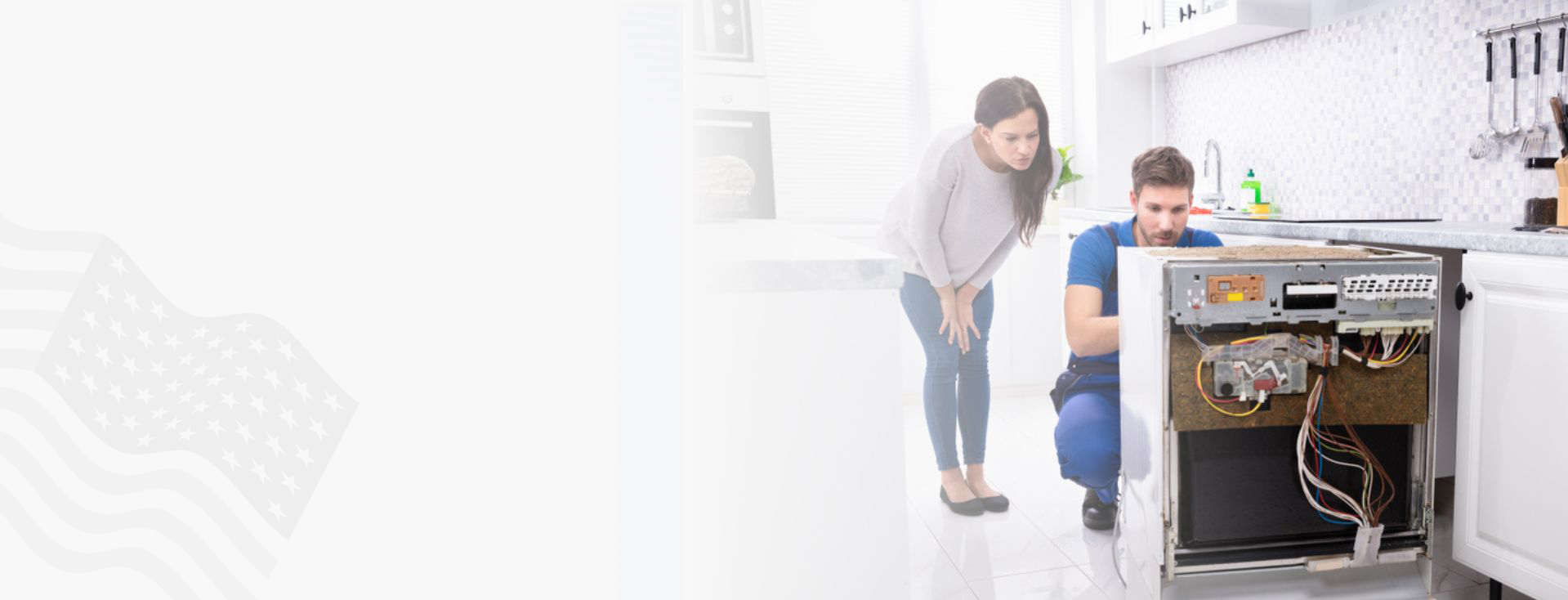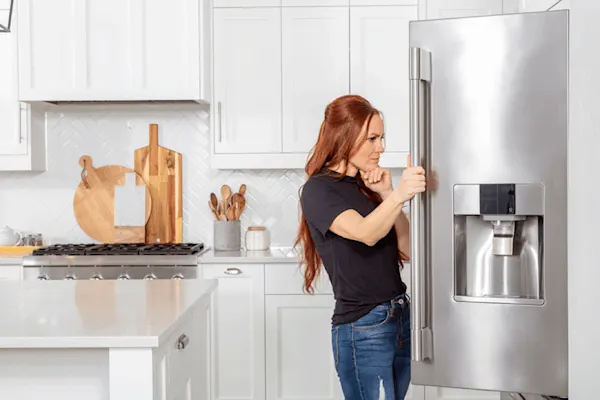The Ultimate Guide to Comprehending Device Repair in the house
When your refrigerator stops cooling or your oven refuses to warm, it can really feel frustrating. Understanding home appliance fixing at home can save you money and time. You'll learn to identify signs and symptoms, utilize vital devices, and adhere to an organized troubleshooting process. Yet prior to you begin, there are essential safety and security preventative measures you require to consider. What are the most common problems, and exactly how can you repair them? Allow's check out the essentials.
Typical Device Issues and Their Signs and symptoms
When your appliances begin breaking down, it's important to acknowledge the signs at an early stage. Overlooking them can lead to larger concerns and costly repair work. As an example, if your refrigerator isn't cooling properly, you could see cozy spots or condensation developing. This can show a falling short compressor or an obstructed vent.Your dishwashing machine might reveal troubles with dirty meals or unusual noises throughout cycles. If you hear grinding or clanking, it's time to investigate.A cleaning equipment that will not spin or drain pipes can leave you with soggy washing, suggesting a blocked drain or a malfunctioning pump.Lastly, if your oven's temperature level seems off or it takes forever to preheat, you could be managing a damaged thermostat. By staying sharp to these symptoms, you can resolve problems prior to they escalate into major repair work.
Important Devices for Appliance Repair
When you're dealing with home appliance fixings in your home, having the right tools is vital. Fundamental hand devices like screwdrivers and pliers will certainly aid you disassemble and fix numerous appliances, while electrical screening gadgets ensure you're working safely with wiring. Allow's look at what you require to get going on your fixing trip.
Standard Hand Tools
Having the right tools is necessary for effective device repair service in the house. Begin with a dependable screwdriver collection, including both flathead and Phillips kinds, as screws prevail in appliance assembly. Pliers are additionally crucial; they assist with gripping, turning, and reducing cords or little components. A set of needle-nose pliers can reach limited spots easily. You'll require an excellent flexible wrench for tightening or loosening nuts and screws. An energy blade comes in handy for puncturing product packaging or insulation. Don't neglect a durable workbench or surface area to safely arrange your tools and components. With these basic hand devices, you'll be well-prepared to take on most device repair services that come your way.
Electric Testing Devices
Along with fundamental hand devices, electrical testing tools play an essential duty in appliance repair work. These tools assist you detect electrical issues and warranty appliances work securely. A multimeter is crucial; it gauges voltage, present, and resistance, enabling you to identify problems promptly. A non-contact voltage tester is another essential, allowing you identify online cords without making direct get in touch with, boosting your security. Clamp meters are wonderful for measuring existing circulation in wires without detaching them, conserving you effort and time. In addition, circuit testers can quickly check if outlets are working appropriately. By making use of these tools, you'll simplify your troubleshooting process and enhance your repair skills, making appliance maintenance a whole lot simpler.
Step-by-Step Overview to Diagnosing Device Issues
When your home appliance acts up, it can be frustrating, yet detecting the issue doesn't have to be overwhelming. You'll learn to determine common problems and apply effective troubleshooting methods. Allow's stroll with the steps to obtain your device back in functioning order.
Typical Device Troubles

Repairing Strategies Explained

Repairing Major Cooking Area Home Appliances: A Closer Look
Have you ever before questioned how to deal with usual concerns with your cooking area home appliances? Repairing significant kitchen area devices like fridges, ovens, and dishwashers can be less complicated than you believe. Beginning by identifying the issue-- whether it's a refrigerator not cooling down or an oven that won't heat up. Frequently, an easy reset or examining the source of power can solve the issue.For refrigerators, clean the condenser coils and check the door seals. If your oven's not heating, examine the home heating component and thermostat. Dishwashers could just require a tidy filter or a reset to obtain them back at work. Constantly disconnect the appliance before diving into repair services to ensure your safety.Don' t fail to remember to consult the user handbook for specific fixing pointers connected to your model. With a little bit of persistence and the right tools, you can confidently tackle appliance repair work and conserve cash while doing so!

Repairing Laundry Devices: Tips and Techniques
When your laundry appliances begin acting up, it can feel overwhelming, but troubleshooting them doesn't need to be a problem. Beginning by inspecting the power supply. Verify the appliance is connected in and the electrical outlet is operating. Next, examine the door or lid switch; a faulty button can protect against the equipment from operating.For washing machines, if it's not spinning, check for out of balance loads. Rearranging the clothes could address the problem. If your dryer isn't heating, clean the dust filter and check the vent for blockages.Listen for unusual sounds; they can show a problem. If your device is leaking, check the hose pipes for fractures or loose connections. Document any kind of error codes shown on electronic screens, as they can direct you in determining the issue. Finally, consult the user guidebook for details fixing tips connected to your model.
Safety And Security Precautions to Take Throughout Services
Prior to you begin any kind of home appliance repair work, it's vital to prioritize safety and security to protect against mishaps or injuries. Unplug the appliance or turn off the circuit breaker to guarantee no power reaches it while you function. Usage protected tools to minimize the danger of electric shock. Use security goggles and handwear covers to protect on your own from sharp edges or debris (Dependable Refrigeration & Appliance Repair Service Washing Machine Repair).Make certain your workspace is neat and well-lit, so you can see what you're doing. Maintain children and pet dogs away from the area to stay clear of disturbances and potential risks. If you're managing gas home appliances, be added careful; check for leakages prior to proceeding.Take your time, and don't hurry with repair work. If you feel unpredictable regarding any kind of action, it's far better to pause and research study than to presume. Adhering to these safety measures will certainly aid develop a safer environment for your do it yourself appliance repair work project
When to Call a Professional for Aid
Exactly how do you understand if it's time to contact an expert for home appliance fixings? If you have actually tried fundamental troubleshooting without success, it's a clear sign. If your appliance still won't start or reveals unusual noises after resetting it, do not wait to seek expert help.When you notice leakages, smoke, or melting smells, prioritize safety and call a pro instantly. These issues can lead to even more substantial damages or present dangers to your home.Also, if your device is under service warranty, calling a specialist is typically the very best path. They can ensure that repair work will not void your service warranty, saving you cash in the long run.Finally, if you're unclear or uneasy with complex fixings, it's smart to leave it to the experts. Keep in mind, tackling challenging problems without the ideal proficiency can bring about expensive mistakes. Trust an expert when in doubt!
Frequently Asked Questions
Exactly How Can I Stop Home Appliance Issues in the Future?
To avoid device issues in the future, you need to perform routine maintenance, check for damage, clean filters, and prevent overloading. Remaining positive will aid prolong their life-span and maintain them running smoothly.
What Are one of the most Typical DIY Home Appliance Repair Service Mistakes?
You could forget safety and security preventative measures, avoid fixing actions, or use incorrect devices when attempting DIY home appliance fixings. Hurrying the process or overlooking maker standards can bring about even more significant problems and expensive blunders. Stay client and informed!
Just how Do I Know if a Part Requirements Replacement?
You can tell if a component requires substitute by inspecting for uncommon sounds, leakages, or irregular efficiency. If the appliance has a hard time to run correctly or shows noticeable damages, it's most likely time for a substitute.
Can I Use Generic Components for Appliance Repair Works?
Yes, you can utilize generic components for home appliance repair work, but identify they're compatible - Dependable Refrigeration & Appliance Repair Service Washing Machine Repair. Common components may conserve you cash, but they can affect efficiency or longevity, so evaluate your options very carefully prior to choosing
What Guarantees Cover Home Appliance Services?
A lot of home appliance guarantees cover repair services for making issues, however they frequently leave out damage from abuse. Inspect your warranty terms meticulously, as some might call for using licensed service read more technicians and original components for coverage to continue to be valid.